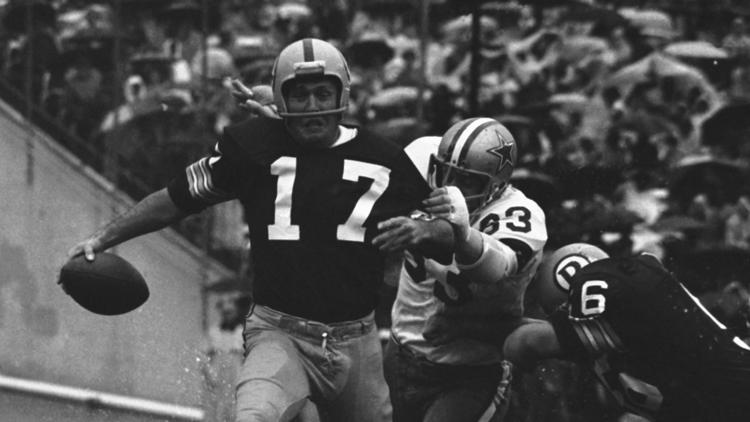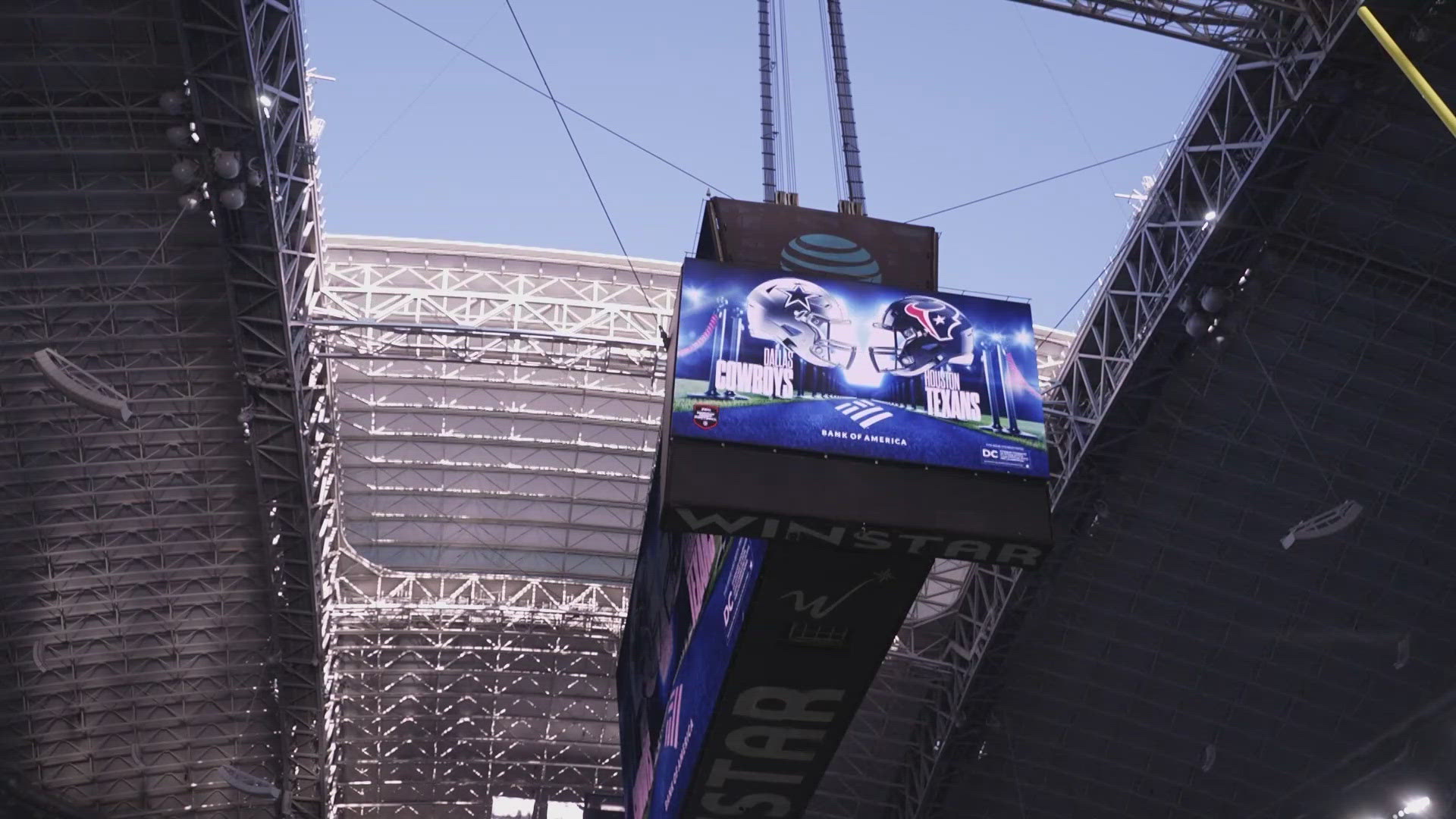DALLAS — As the sports world awaits what Dan Snyder will choose for the Washington D.C. football team's new nickname, there's a feeling it will impact the rivalry between the Dallas Cowboys and their arch nemesis from the NFC East.
Since Dallas' inception, the two sides have played off of the old Western theme of "Cowboys and Indians." In the NFL Films DVD set "Dallas Cowboys: The Complete History of America's Team," the narrator refers to the NFC East rivalry as the "NFL's range war."
While the feeling is the rivalry won't be the same, it would, in fact, be the nail in the coffin for a series that has been lackluster since at least the 1990s.
However, while names gave the rivalry a playground nudge in a marketable direction, that wasn't what made the showdown; it was the cast of characters.
George Allen, who coached Washington from 1971-77, intensified the rivalry because of his disdain for the Dallas franchise. He hated the Cowboys.
Allen despised Dallas so much that he had a hard time calling his own defensive end, Dallas Hickman, who played for Washington from 1976-81, by his own first name. Allen would habitually call Hickman "Dulles," the name of one of the nearby airports in the D.C. area.
Cowboys players equally hated Allen. Dallas quarterback Danny White told NFL Films he would hope to get knocked out of bounds just so he could have a chance to run into the spirited Washington coach.
By the same token, any NFC East foe that faced the Cowboys in the '90s loathed Michael Irvin and his showboating. The three-time Super Bowl-winning receiver infuriated opposing players and fans because he backed up his antics with stellar play.
Even with the name change, the history of the rivalry remains. Washington still is 2-0 against Dallas in the playoffs.
The Cowboys are still 73-45-2 in the regular season, still riding a three-game winning streak, and own the longest winning streak in the series at 10 from 1997-2002. (Dave Campo's greatest accomplishment was coaching five of those victories.)
Is Roger Staubach's last regular season game on Dec. 16, 1979, viewed any differently now that Washington has a new name? Captain Comeback lived up to his name, found Tony Hill for the game-winning touchdown, kept their arch rivals out of the playoffs, and won the division.
Does the team name really matter when remembering rookie Darrell Green ran down Tony Dorsett in Week 1 of 1983 on Monday Night Football?
How significant is Washington's team name when recalling the '83 rematch at Texas Stadium where White unsuccessfully went for it on fourth-and-1 with coach Tom Landry hollering the notorious "No, Danny, no"?
The rivalry was born in 1959 when Washington owner George Preston Marshall refused to vote for expansion in the NFL below the Mason-Dixon line.
Before 1960, Marshall and his franchise were the only NFL team in the South, and he used the Evening Star Broadcasting Network to televise Washington games. That's why the original lyrics to Washington's fight song ended with "Fight for old Dixie," to reinforce the Southern ties.
After missing out on a chance to take over the defunct Dallas Texans, who only played in 1952, Clint Murchison, Jr. still wanted to own a pro football team.
For the NFL to expand, there had to be a unanimous vote, and Marshall was holding out. Murchison purchased the rights to the song "Hail to the [former team name]" after Marshall had a falling out with his band director.
Marshall needed to play that song during every Washington home game, but Murchison wouldn't allow it, save for one condition: a yes vote for expansion in Dallas.
If Dallas weren't the Cowboys – a distinct possibility as the names Rangers and Steers were considered – would the battles between two division foes have been less intense? The rivalry began just by Murchison strong-arming Marshall into giving up his territory for a new NFL team in the South.
The state of the rivalry and the future depends on the on-field product, not the team names. Ultimately, it has been the details of the rivalry's history that has made it fascinating, not their monikers.
What do you think the Washington football team should pick for their new name? Share your thoughts with Mark on Twitter @therealmarklane.
More from WFAA:
- Here's everything you need to know about Washington's NFL team name change
- Steph Curry memorializes Breonna Taylor with 'Black lives matter' golf shoes
- Ezekiel Elliott’s tenure as top running back has an NFC East challenger
- NHL and players approve plan to resume season, extend CBA
- Joey Gallo cleared to return after positive COVID-19 tests, Rangers say



